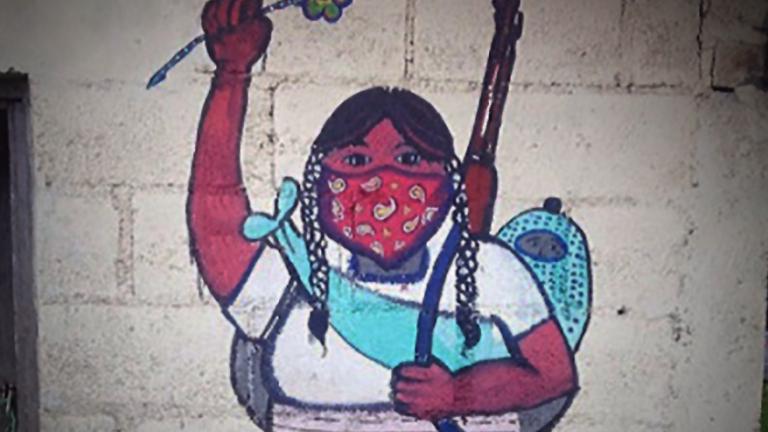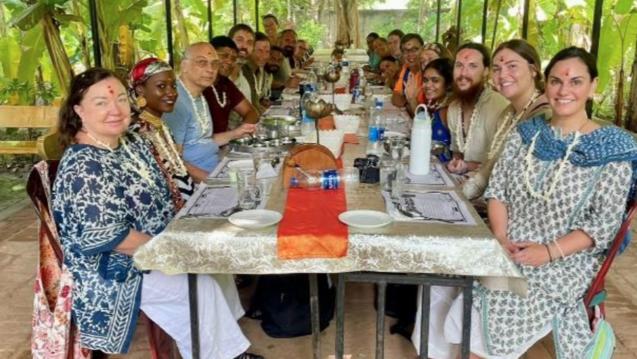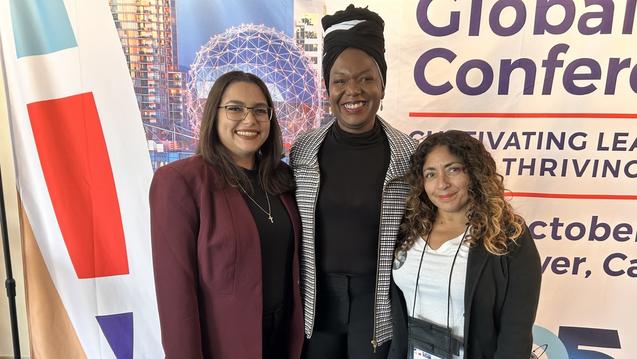Last fall, Human Sexuality doctoral students and faculty members presented two panels at the National Women's Studies Association (NWSA) meetings.

Building Autonomy and Resilience in Chiapas, Mexico
An interview with Alberto Vallejo Reyna
¡Llegamos! We arrive in the autonomous Zapatista territory at 12:30pm (tiempo del capitalismo/capitalist time). Our white van has been winding its way through the hills of Chiapas, Mexico for over an hour, eight of us piled into the automobile, our stomachs alive with both motion sickness and immense anticipation for this day. The Zapatistas have invited us here to Oventic, one of five autonomous regional centers, called caracoles/snails, where one of their autonomous "Good Government Councils" converges.
Over the previous week, we attended an encuentro/encounter between the Zapatistas and scientists from all over the world. Such encounters are part of building a "world in which many worlds fit" (Stahler-Sholk, As Subcomandante Insurgente Marcos, now assuming the name "Galeano," explains, "...encounter is first and foremost an ethic, an ethic of opening oneself to others-- even, or perhaps especially, at the risk of losing oneself." 1
For decades now, the Zapatistas have sought out encounters with los otr@s/the others, in order to expand their understanding of the world and build a network of global resistance to capitalism and neoliberalism. Each encounter is intended to leave both parties forever changed through their interaction with the other.2
The encuentro we have been attending is called ConCiencias por la Humanidad, which translates to both "with sciences for humanity" and "consciences for humanity." The title reflects the content of the encuentro, where participants addressed a wide variety of questions under the general theme of: how is science co-opted by capitalism to promote global exploitation, and how can science be reclaimed for social good, both in Zapatista territories as well as globally? At the end of the conference, the Zapatistas invited all of the attendees to visit Oventic and bring the encuentro to a deeper level.
We pull up to the entrance of Oventic, where five Zapatista men and two women stand guard, each with either a black ski mask or a bandana covering their face. Behind them is a metal gate that is adorned with bouquets of tiny yellow, pink and white flowers, one bouquet for every spike on the fence. It is the day before the first of January, marking 24 years since the Zapatistas' 1994 armed uprising against the Mexican government, and they are preparing to celebrate.
Our group walks over to the entrance at the left side of the gate. Here, we show our passports and badges from ConCiencias por la Humanidad to two masked Zapatista men. They write down our names, countries of origin, and ask for our occupations. "Estudiante/student," I say. After taking down all of our information on a clipboard, the men disappear. We wait outside the gate on the cement ledge of the road, then overheat in the sun and move across the street into the shadow of a cooperative tienda/store. Forty-five minutes pass. This is tiempo Zapatista/Zapatista time; we must be patient and leave our colonized high-paced lifestyles in the touristic city of San Cristobal where we have been lodging.
A sign painted on the wall of the cooperative reads Lento Pero Avanza/slow but forward. Below the words is a drawing of a caracol/snail wearing a black Zapatista ski mask.
After an hour and a half the gates of Oventic open, and we are invited to enter. I take a deep breath as a flood of emotion runs through me. I know that this encuentro will leave me forever changed, exactly the intention of the Zapatistas in inviting us here.
Hadley Greswold is a graduate student in the Anthropology and Social Change program.
Sources:
- Stahler-Sholk, Richard (2000), "A World In Which Many Worlds Fit: Zapatista Responses to Globalization," at http://lasa.international.pitt.edu/lasa2000/stahler-sholk.pdf (accessed: 30 March 2018).
- El Kilombo Intergaláctico (2007) Beyond Resistance: Everything, An Interview With Subcomandante Insurgente Marcos, Durham: Paperboat Press.
Related News
Sasha Bainer, an East-West Psychology student, provides us with insights into their firsthand experience of Auroville.
Graduate students in CIIS’ Transformative Leadership Master's Program Capture Prestigious ILA Student Case Competition



